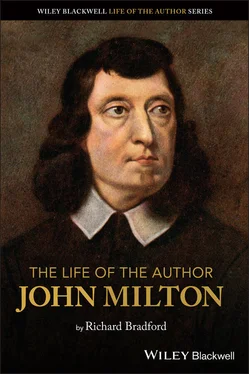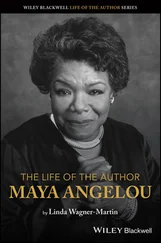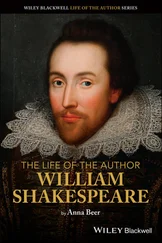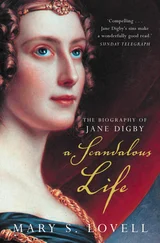A number of questions are raised by Milton’s apparent reluctance to address himself to contemporary verse. Did he, as a classicist, regard the Greek and Latin poets as innately superior to their English-language counterparts? If that were the case then why did he also begin to write verse in English? Another possibility is suggested by the thesis and indeed the title of a book by the modern critic Harold Bloom, The Anxiety of Influence (1973), in which Bloom argues that many aspiring poets are so convinced of their own uniqueness that they set about detaching themselves from the reputations of both their precursors and their contemporaries. The only occasion on which Milton did refer in print to another major English poet was in a short poem called ‘On Shakespeare’, written in Cambridge in 1630 and printed in 1632 among prefatory material to the Shakespeare Second Folio. Shakespeare had been dead for fourteen years when Milton wrote the poem and it was already becoming evident that his enduring genius would outstrip his contemporaneous popularity. Milton’s poem is at once diligently respectful and unnerving, in that he addressed it not so much to Shakespeare the man as to his work which, he implies, is of far more significance than his living presence. The question of whether, or to what extent, Milton was familiar with Shakespeare’s writing has been the cause of speculation for three centuries. They were near-contemporaries and by consensus the most important English authors of the Renaissance whose legacies have endured matchlessly since their time. ‘On Shakespeare’ demonstrates that Milton was in awe of his reputation – anyone of the period who was not would have been a hermit – but it tells us nothing of whether he had formed an opinion on his work from reading it or seeing it performed. It would be misleading to assume that because he had been commissioned to contribute to the Preface of the Folio he had read the rest of it. Before 1623 less than half of Shakespeare’s works were in print, largely individual plays in short books known as quartos, and many of these contained only the names of the theatre companies which had performed them rather than that of the author. The rest were ‘foul’ copies, longhand versions of the plays, often transcribed and amended by those involved in performances. There is no proof that Milton purchased a copy of the Folio and it is unlikely that he would have been given a complimentary volume – this convention of token rewards for contributors to publications is relatively recent – but there is now convincing evidence that he owned a copy and read it diligently. One of the rare surviving 1623 Folios has been deposited in the Free Library of Philadelphia since 1944. It was annotated in longhand in the seventeenth century by its seemingly anonymous first owner but in September 2019 the Cambridge Milton specialist Jason Scott Warren looked at it and found striking similarities between Milton’s handwriting, recorded in various documents from his youth onwards, and the annotator’s. Other academics familiar with Milton manuscripts concurred, notably Will Poole of Oxford, and some went further. Not only is the handwriting identical to that known to be by Milton, the Folio annotator and the poet share grammatical and stylistic habits. The annotations are generally brief marginal notes rather than observations on the nature of Shakespeare’s qualities as a literary artist. For example, he underscores idiosyncratic rhyme echoes which, perhaps coincidentally, resurface in Milton’s verse. Nonetheless, the indication that Milton ‘close read’ Shakespeare raises questions about how this dialogue, albeit a one-sided exchange, between the two men would impress itself on the work of the former, notably Comus and Paradise Lost .
‘On Shakespeare’ marked his first encounter with his esteemed predecessor and one couplet is particularly unsettling:
Then thou our fancy of itself bereaving,Dost make us marble with too much conceiving
Here Milton seems to be, with polite ambiguity, suggesting that the influence of Shakespeare, or at least his work, could be counterproductive. Milton implies that ‘too much conceiving’ (the overuse of extravagant metaphor) will consign poets to the past (‘make us marble’) rather than cause them to endure via their work. Is he suggesting that Shakespeare’s surpassing skill with figurative language has become both his monument and, more sadly, the self-indulgent inheritance of his successors, the Metaphysicals? ‘On The Morning of Christ’s Nativity’ makes it clear that Milton regarded poetry more as a vehicle for the clarification of essential notions of human condition than, as he implied of Shakespeare, an excuse for performing tricks with language.
He does not alter the detail of the Biblical story, but the feature of the poem which has maintained its accredited significance is its tendency to cause the reader to think closely about the very notion of God’s incarnation, the intersection of the timeless and ineffable with the transient and fragile state of mortality.
In Stanza 14 he evokes the effect of the angelic choir:
For if such holy songEnwrap our fancy long,Time will run back and fetch the age of gold,And speckled vanityWill sicken soon and die,And lep’rous sin will melt from earthly mould,And hell itself will pass away,And leave her dolorous mansions to the peering day .
(133–40)
This and the stanza following it are ambiguously optimistic. The birth of Christ seems to offer a relatively painless and generous form of redemption. Sin, hell, mortality (‘the dolorous mansions’ and ‘the peering day’) are briefly removed; humanity seems to have been returned to ‘the age of gold’. But as we should be aware, this age, our prelapsarian state, is irretrievable, and in Stanza 16 Milton reminds us of the fact.
But wisest fate says noThis must not yet be so .
(149–50)
The child in the manger must be crucified:
The babe lies yet in smiling infancy,That on the bitter crossMust redeem our loss .
(151–3)
This concertinaing of Christ’s life, most specifically the image of a crucified infant, is deliberately shocking. The effect of the image underpins Milton’s message – before we can return to a golden age, comparable to the time before the fall, there is much suffering to be done, by Christ and us.
Throughout the poem Milton interweaves his presentation of the events attending the birth of Christ with intimations of theological truths that underpin it. In the first two stanzas he notes that,
Nature in awe to himHad doffed her gaudy trim
(32–3)
Nature has chosen to ‘hide her guilty front with innocent snow’, has thrown ‘the saintly veil of maiden white’ upon her ‘foul deformities’. Later in Stanza 7 he returns to this theme and tells how the sun,
Hid his head for shameAs his inferior flameThe new enlightened world no more should need .
(80–2)
The natural world was presented frequently in Renaissance verse as an approximation of its Edenic counterpart, its beauty a part of God’s design, but Milton turns this strategy around and reminds the reader that nature, incorporating man, is an element of our post-lapsarian state. Its attractions are but ‘foul deformities’ compared with what we have lost and appropriately it hides itself from the coming of Christ.
The poem is striking in that it continually projects its ostensible topic into a broader, all-inclusive contemplation of man’s relationship with God, focusing particularly upon the reason for the coming of Christ – man’s original act of disobedience and its consequences. Again, we should note that while this was an ever-present feature of Renaissance, post-Reformation consciousness, its emphatic resurfacings in Milton’s early verse suggests that as a poet he had an agenda, a scale of priorities. And he would eventually address himself directly to its apex: Paradise Lost , the fall of man.
Читать дальше












